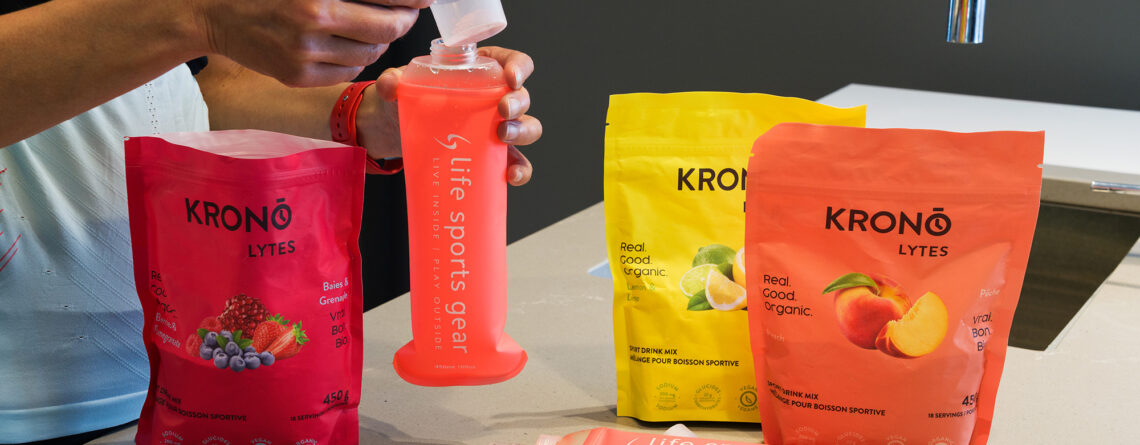
Electrolytes: what you need to know
Krono Team2023-10-31T21:43:32-05:00Whether you’re an amateur or an elite athlete, taking care of your body is essential to performing at your best. A crucial part of this care is understanding your needs, and knowing how to meet them. For example, electrolytes play a vital role in our health and sporting performance. Let’s demystify what these minerals are and why we need to consume them.
Electrolytes: what you need to know
Whether you’re an amateur or an elite athlete, taking care of your body is essential to performing at your best. A crucial part of this care is understanding your needs, and knowing how to meet them. For example, electrolytes play a vital role in our health and sporting performance. Let’s demystify what these minerals are and why we need to consume them.
What are electrolytes?
Electrolytes are electrically charged minerals that play an essential role in the body’s proper functioning. The main electrolytes are sodium, potassium, calcium and magnesium. Each is responsible for a specific function in the body. What unites them, however, is their ability to conduct electricity, a feature crucial to the performance of many bodily functions. So why do we need to consume them, especially as athletes?
It’s because they help maintain the fluid balance in your body that, during intense exercise or in hot weather, you lose not only water, but also these precious electrolytes. Replacing them is essential to avoid dehydration, which can lead to reduced performance and even serious health problems. In fact, minor dehydration – around 2% water loss – can be accompanied by a drop of up to 20% in sporting performance. When water loss rises to 4%, this drop in performance can vary between 40 and 60%, depending on the surrounding temperature.1 Calcium, sodium and potassium are the minerals that contribute most to muscle function and contraction. An electrolyte imbalance can therefore cause muscle cramps and reduced strength.
Electrolytes also contribute to the production and maintenance of energy in the body. Potassium, in particular, is essential for the proper functioning of muscle and nerve cells. Adequate potassium levels can help prevent fatigue and maintain good endurance during exercise. After intensive training, rehydration with a drink containing electrolytes can therefore help speed recovery by rebalancing electrolyte balance and minimizing muscle soreness.
How can electrolytes be replaced?
Since electrolytes are not naturally produced by the body, they need to be supplied by the diet, on a daily basis.2 They should therefore generally be consumed in foods and beverages, such as :
– Electrolyte drinks: sports drinks are specially formulated to replenish electrolytes lost during physical exertion.
– Foods: electrolyte-rich foods include bananas, apricots, avocados (potassium), dairy products, tofu, spinach (calcium), wholegrain cereals, dried fruit (magnesium) and sea salt (sodium and chloride).
In conclusion, electrolytes play a vital role in sports performance. By understanding their importance and maintaining a proper balance, you can maximize your potential, minimize the risk of injury and promote recovery. So don’t forget to stay hydrated, and consult a healthcare professional or nutritionist to determine your specific electrolyte needs according to your level of activity.
